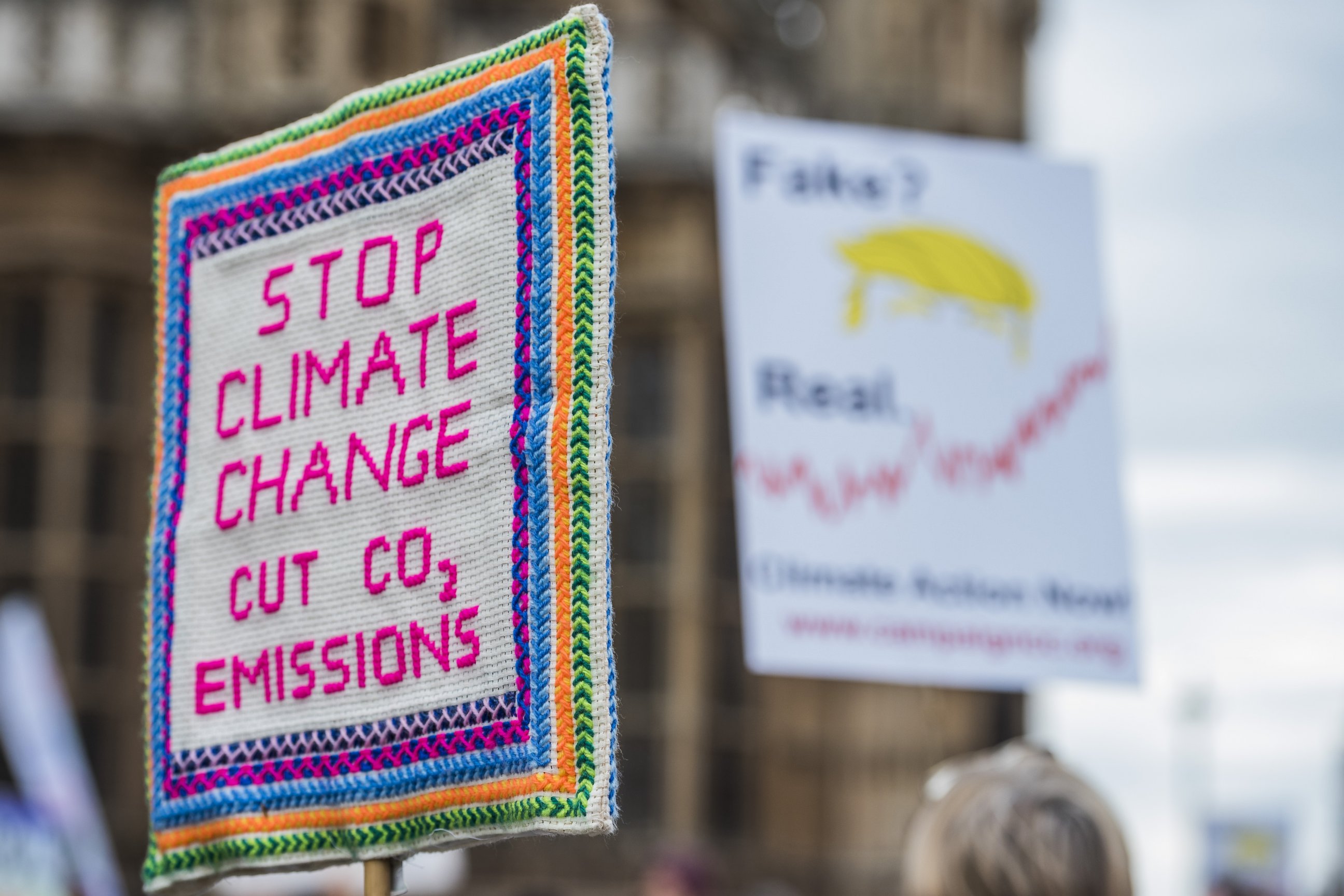What to know about the Paris Agreement, possible US withdrawal
The Paris agreement is an accord aimed at slowing global climate change.
— -- A senior White House official told ABC News that the President is poised to drop out of the Paris climate accord.
Trump has repeatedly called into question the science behind climate change, once calling it a "very expensive hoax." During his campaign, Trump said he would "cancel" the Paris agreement and his administration has ordered cuts to funding for climate science.
The non-binding international agreement went into effect last year and calls for countries to set goals for reducing greenhouse gas emissions. The agreement was signed by former Secretary of State John Kerry on Earth Day, April 22, 2016 on the U.S. behalf. President Obama signed it into law via executive action, bypassing the then Republican-controlled Senate.
What is the Paris Climate Agreement?
The Paris Agreement is an accord sponsored by the U.N. designed to help slow global climate change. The 147 parties who ratified the convention set a goal of limiting global temperatures increases this century to no more than 2 degrees Celsius above levels from the pre-industrial era, defined as the years 1850-1900. It also states an intention to work toward a more stringent limit of only 1.5 degrees Celsius above pre-industrial era levels.
After the conference, each country set its own "Nationally Determined Contributions" (NDCs) and agreed to report its progress regularly on decreasing greenhouse gas emissions. To remain in the deal, the U.S. must cut its emissions by 26 percent from 2005 levels by 2025.

Where do members of the Trump administration stand on the agreement?
Throughout his campaign for the presidency, Trump said he would roll back environmental protections and regulations and threatened to "cancel" the deal.
Environmental Protection Agency Administrator Scott Pruitt said The Paris Agreement is bad for America because it’s bad for jobs. However, Secretary of State Rex Tillerson, the former chief executive of Exxon, said he supports staying in the deal. White House adviser Ivanka Trump set up a review process to make sure her father received information from experts in both the public and private sectors before making a decision on the agreement.
What are the consequences of withdrawing?
If the U.S. pulls out of The Paris Agreement, it would become one of the largest producer of greenhouse gas emissions not included in the agreement, according to EPA data. The United States would become one of only three nations in a U.N. climate group not to be signed onto the deal, alongside Syria and Nicaragua.
“The Paris agreement was designed to be flexible so that parties could respond to changing domestic circumstances,” Andrew Light, a distinguished senior fellow at the World Resources Institute told ABC News. Light said that the Trump administration could face fallout if it withdraws from the agreement.
“It could potentially harm U.S. businesses who are trying to compete with businesses from other countries in the exploding global market in renewable energy,” Light told ABC News. He went on to explain that withdrawal could look like “Trump is turning his back on the world” by walking away from the spirit of global cooperation that the Paris accord created.
State and religious leaders have expressed desire for Trump to continue U.S. participation in the agreement. The Pope gave Trump copies of his published works on climate change as a parting gift following their meeting on May 24, which some read as an encouragement toward the Paris accord.
Although the official cautions no decision is final until the president announces it, the source said the White House is now working on how to roll out and explain the reasons behind that announcement.
ABC News' Jonathan Karl, Conor Ferguson, Catherine Thorbecke, Michael Edison Hayden and Evan Simon contributed to this report.




